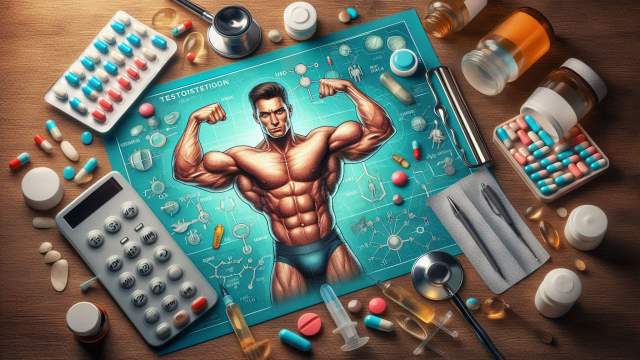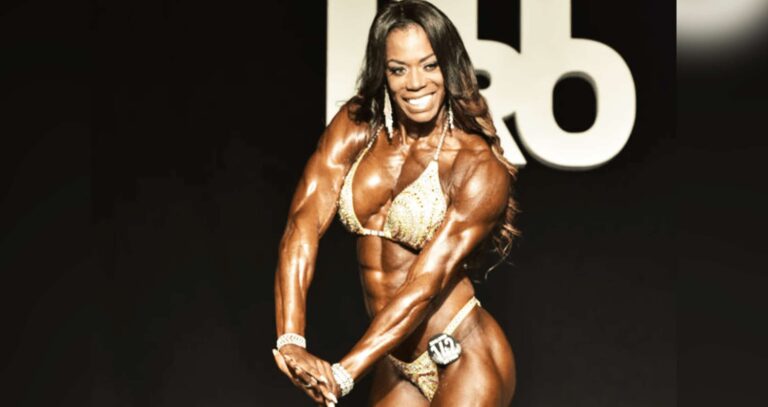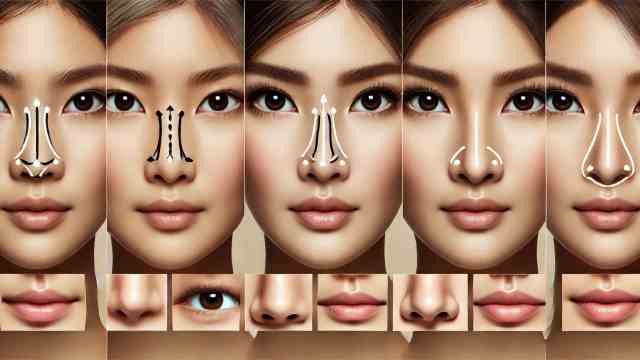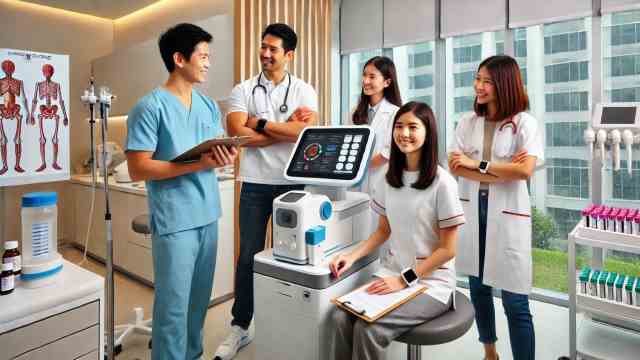Understanding Testosterone for Bodybuilding: Key Aspects
Testosterone is a naturally occurring hormone in the human body, primarily produced in the testes in men and in smaller amounts in the ovaries and adrenal glands in women. It plays a crucial role in various physiological processes, including the development of male reproductive tissues, muscle growth, bone density, and secondary sexual characteristics. In the context of bodybuilding, testosterone is of significant interest due to its potent anabolic properties and its ability to enhance muscle growth, strength, and overall performance. Exploring the key aspects of testosterone use in bodybuilding provides valuable insights into its role in optimising your training and achieving your goals. Whether you are considering options such as testosterone or exploring other types of anabolic steroids, understanding the effects of testosterone in bodybuilding is important for people looking to maximise results.
Anabolic Effects of Testosterone
Testosterone is often referred to as the “king of hormones” in bodybuilding because of its powerful anabolic effects. It stimulates protein synthesis in muscle tissue, resulting in increased muscle mass and size. Additionally, testosterone enhances nitrogen retention, promoting positive nitrogen balance, which is essential for muscle growth and repair. These anabolic properties make testosterone the cornerstone of many bodybuilding cycles, serving as the foundation for achieving significant gains in lean muscle mass and strength. More information about steroids can be found at https://steroidking-uk.com/.
Regulation of Muscle Growth and Repair
Testosterone plays a critical role in regulating muscle growth and repair processes in response to resistance training. It activates satellite cells in muscle tissue, promoting their proliferation and differentiation into new muscle fibers. This results in muscle hypertrophy, or the increase in muscle size, as well as improved muscle recovery and repair following intense exercise. By enhancing muscle protein synthesis and reducing muscle protein breakdown, testosterone ensures optimal conditions for muscle growth and adaptation to training stimuli.
Impact on Strength and Performance
In addition to its effects on muscle growth, testosterone also influences strength and performance in athletes and bodybuilders. Studies have shown that testosterone supplementation can lead to significant improvements in strength, power, and athletic performance, particularly in individuals with suboptimal testosterone levels. By increasing muscle mass, enhancing neuromuscular function, and improving muscle fiber recruitment, testosterone enhances overall physical performance and enables individuals to lift heavier weights, perform more reps, and sustain higher training volumes.
Importance of Optimal Testosterone Levels
Maintaining optimal testosterone levels is crucial for maximizing muscle growth, strength, and performance in bodybuilding. While testosterone production naturally declines with age, factors such as stress, poor diet, lack of sleep, and certain medical conditions can also affect testosterone levels. Therefore, individuals interested in bodybuilding often seek ways to optimize their testosterone levels through lifestyle modifications, supplementation, or hormone replacement therapy (HRT) under medical supervision.
Considerations for Testosterone Supplementation
Testosterone supplementation is a common practice in bodybuilding circles, with many individuals using exogenous testosterone preparations to augment their natural hormone levels. However, it’s essential to approach testosterone supplementation with caution and awareness of potential risks and side effects. These may include:
- Estrogenic Side Effects: Testosterone can aromatize into estrogen in the body, leading to side effects such as water retention, gynecomastia (enlargement of breast tissue in men), and increased risk of cardiovascular complications.
- Androgenic Side Effects: Testosterone is highly androgenic and can cause androgenic side effects such as acne, oily skin, accelerated hair loss, and increased body hair growth.
- Suppression of Natural Testosterone Production: Exogenous testosterone supplementation can suppress the body’s natural production of testosterone, leading to hypogonadism and a state of hormonal imbalance. Post-cycle therapy (PCT) with medications like selective estrogen receptor modulators (SERMs) may be necessary to restore natural testosterone production after a steroid cycle.
Testosterone plays a central role in bodybuilding, influencing muscle growth, strength, and overall performance. Its potent anabolic effects make it a cornerstone of many bodybuilding cycles, providing the foundation for achieving significant gains in lean muscle mass and strength. However, individuals considering testosterone supplementation should weigh the potential benefits against the risks and ensure they have a comprehensive understanding of its effects on the body. Consulting with a healthcare professional or qualified expert before starting testosterone supplementation is essential to minimize potential health risks and optimize outcomes in bodybuilding endeavors. Additionally, exploring options like testosterone price UK and reputable sources to buy steroids online UK ensures access to quality products and safe practices in steroid use.







